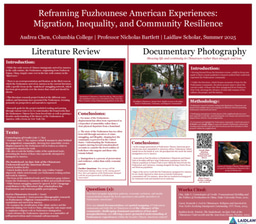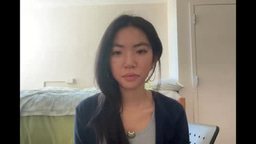1. What are some of the ethical issues that you are grappling with in your research? What are some of the ways in which you are responding to these questions?
Now that I have shifted my research to include a photography component, there are greater ethical concerns I need to consider. During this week’s session with our graduate student mentor, my group helped workshop my project, and Skylar, our mentor, pointed me toward conducting a photovoice project. This method is more participatory, allowing members of selected communities to share their own perspectives and narratives through the photographs. For my project, this could take the form of returning to Chinatown and inviting residents to tell me how they think a photo should look by using editing software to adjust it themselves. This would mean letting them tinker with things like contrast, highlights, saturation, and the presence of certain color hues. While I’m still not sure if this is entirely feasible, researching the photovoice method has made me more aware of the many different approaches I haven’t yet considered for my project. This has inspired me to spend more time with the Columbia Libraries archives to see how others have incorporated photography into their research.
In my past photo essays, one major ethical concern I’ve grappled with is consent and my level of interaction with the subjects. In my senior year of high school, I spent a month studying a local skatepark. For that project, I dedicated time to getting to know the skaters, and with each interaction, I gained a better understanding of how to engage with them creatively, behind the lens. Because of the language barrier I’m facing with my current project, I worry about how I might be able to replicate these steps in Chinatown.
2. As you continue your research, have you considered alternative viewpoints in your investigation? If so, how have these alternative viewpoints enriched or changed your project?
From discussions with my smaller graduate student groups to working with Professor Bartlett to talking with other Laidlaw Scholars in random hallways and on random benches, every conversation I’ve had about my project has helped move it forward in some way. It seems that with every exchange, my project takes on a slightly different direction, motivating me to constantly tinker with the different pieces I’ve gathered as I’ve explored the existing literature and embarked on my photography project.


Please sign in
If you are a registered user on Laidlaw Scholars Network, please sign in
This sounds amazing Audrea! Translating your research into real community building through photography is a really creative method to not only portraying your research to a broader audience, but also, grasping people's attention through photography, creative art form. I'm really excited to see where your research takes you. Good luck!